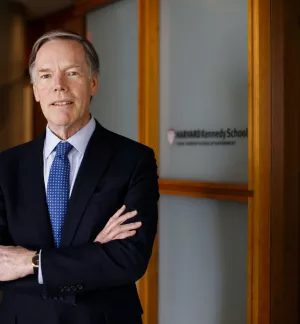THE FIRST World War, the “Great War’’ that ended 93 years ago today, saw the United States emerge as a global power. But the war’s most lasting historical impact was its aftermath. Rather than use its battlefield success to win a critical peace in Europe, the United States turned inward. Massachusetts Senator Henry Cabot Lodge pushed the Senate to reject President Wilson’s League of Nations. An insular America chose isolation from the world and failed to lead when Hitler and Mussolini rose to power. The ultimate irony was that the “war to end all wars’’ led directly to an even more cataclysmic World War II two decades later.
This most urgent lesson of the Great War should give us pause as we arrive at another crossroads in our history with a clear choice to make about our role in the world. The 9/11 decade yielded a bitter and failed intervention in Iraq and stalemate in Afghanistan. After spending more than $1 trillion on the two wars alone, losing more than 6,200 young soldiers, and experiencing the trauma of recession since 2008, it is not surprising that voices of isolation are returning to our national debate. They can be heard on the extreme left of the Democratic Party and, especially, on the Tea Party-dominated Republican right.
Our internationalist president was right to declare in June that “it is time to focus on nation-building here at home’’ as rebuilding our economy and restoring national self-confidence are urgent necessities. And, while this new isolationism is not a full-blown call of retreat from the world, there is a palpable shift in attitude in Congress. It is an insidious turning inward by congressional budget leaders whose Draconian cuts will deny us the ability to lead globally at the very time when it is most critical for our economic health and political future.
How else can we understand the shifting winds in Washington? In its manic drive to slash budgets, Congress risks cutting the muscle from our extraordinary armed forces just when we need them to protect against a newly emboldened Iran and a rising Chinese military. Congress also plans to gut the State Department budget and cripple the ability of US diplomats and foreign-aid officials to lead on complicated challenges from climate change to terrorism to nuclear proliferation. Lawmakers have already cut by half critical Title VI money that funds university study of vital foreign languages such as Arabic. A congressional committee even passed a bill last week making it illegal for American diplomats to talk to Iranian officials.
This runaway desire to rid ourselves of responsibility in the world has been a major force in the rush for the exits in both Iraq and Afghanistan. The new insularity is clearly visible in the Republican presidential debates. Of the eight candidates, only Mitt Romney and Jon Huntsman can be described as true internationalists. Herman Cain boasts he does not know the name of the president of an important Central Asian country. Ron Paul and Rick Perry appear to represent a strain of Tea Party sentiment that would have us dig a deep moat around America, pull up the drawbridges, and defend ourselves against foes imagined and real. More importantly, international issues barely figure in the Republican debates. There have been few serious foreign policy discussions even though America faces its most complex and dangerous international agenda since World War II.
Meanwhile, unlike Americans at the end of the Great War, we live in a dramatically different world, one much more integrated and connected. In sharp contrast to the world of 1918, our economic fortunes will rise or fall based on our ability to compete internationally and to export. Our national security depends on creating international coalitions to fight the crime and drug cartels and terrorist groups infiltrating our borders. Our young people will succeed or fail in large part on their ability to live and work across national boundaries. A country living in isolation cannot even hope to take on, much less win, the greatest battles ahead - nuclear proliferation, global poverty, restoring economic growth and stability. Turning away from global responsibilities is is a one-way ticket to failure.
This is a big and defining issue for the United States. It matters greatly for our future. We still have leaders in both parties, President Obama, Senator John Kerry, and Senator John McCain among them, who understand how important we are to the world and how much our success at home depends on that international leadership role. An earlier generation of leaders failed that test following the Great War. We should expect much more from our current leaders in both parties as we approach a critical election year in 2012.
Nicholas Burns is Professor of the Practice of Diplomacy and International Politics at Harvard’s Kennedy School of Government. His column will appear regularly in The Globe.
Burns, Nicholas. “America’s New Isolationism.” The Boston Globe, November 11, 2011


